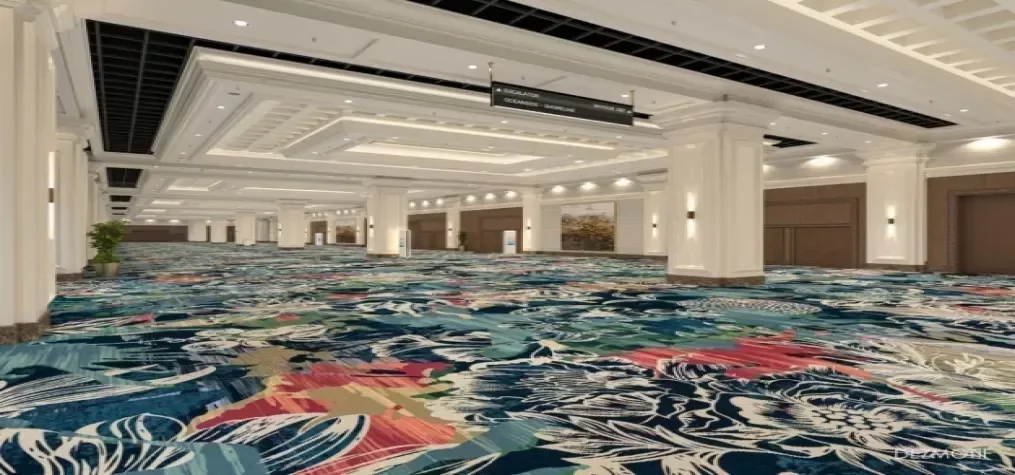Marco Spinger

Marco Spinger is Director of Global Markets & IT Division of the Association of the German Trade Fair Industry (AUMA)

Digitalization is nothing yet to come. We are all living in the age of digitalization. We are already embedded, but it should not be considered as an end in itself. The question is: What’s in it for the customers or what’s in it for your own organization?
Digitalization: an important step of development in our industry
As one major economic trend, the influence of digitalization could change and/or create business models, of course also within the trade fair industry. That’s why I would like to address some highlights from the German perspective for an approach to this issue.
When dealing with economic developments, the legal framework is always a regulating factor. Politics usually have the opportunity to influence and set up guard railings. That’s why I don’t want to skip the most important legal aspects absolutely. Anyway, digitalization will be seen as an important step of development in our industry.
Let me start with an overview of the current digital agenda of most of the AUMA members, those they created already or are working on:
· websites (in responsive design for mobile use), blogs, social media and newsletters to reach different communities
And apps:
· digital floor plans
· digital/flexible signage (on mobile devices and other screens)
· congress programs
· online matchmaking
· exhibitor databases
· permanent online platforms for industries (so-called product pilot, virtual marketplace)
· online booking, stand configuration and invoicing for exhibitors
· online registration and ticketing for visitors
· tailored press information
· and more
Exhibitors are testing new technologies, too. For example, with the beacon technology, they send positioning and pushing marketing information to visitors or promoting virtual visits to their production sites. This is all in starting phase and used by early adopters, but we will hear more about that soon.
One more hint: Regarding social media, some experts advise that you have to create the feeling that the trade fair is listening and talking to the exhibitors and visitors. It’s not a traditional one-way channel to promote.
What are challenges and expectations of clients?
The experiences of exhibitors and visitors by using B2C or private online applications cause high expectations regarding availability and quick response. They transfer these experiences into the B2B world with high expectations, although they are aware that these channels often have less traffic and up to now, often less profitability than B2C. The growing digitalization also leads to new customer needs such as broadband and mobile internet for increasing mobile data transfer, for example, for live streaming from trade fairs or other events. If this can be free of charge depends on the different business models in Germany. For these expectations and the before-mentioned trade fair related services, we will have huge data traffic.
The German Government started an initiative with the aim of nationwide availability of broadband infrastructure until 2018. AUMA appreciates any initiative that enables the trade fair industry to supply the new services, but that is not a specific issue for the trade fair industry. It is a question of economic development in general. But measures have already been taken. Working groups or new departments have been installed to find solutions for the new working structures and cultures. For example, mobile flexible working places, especially for teams working worldwide, have been created, which can generate more efficiency in the workflows. AUMA members will work on this more and more.
Legal regulations and data protection in Germany
Of course, the new business models, especially regarding online matchmaking services, have to comply with the European and German regulations. And when it comes to personal data of visitors and exhibitors, which are the valuable data, we have a high standard of protection. Basic rules are the need of so-called explicit consent, which means that exhibitors and visitors agree upon the collection, the use, and storage of their data, and they have the right to withdraw it.
Besides a lot of formalities, the management of storing a large number of consents can be a challenge. And this even more, since we have to take into account that the databases have to be unlimited in time and number of consents. But the clarifying of legal and technical questions can be worthwhile. The following questions should serve as a guidance:
1. What kind of data do you have?
2. How is the quality of your data?
3. How can you analyze the data and what potential applications or business models are you able to create?
Making the data accessible to different user groups, not only technical specialists, opens up the opportunity for them to identify their hot leads. Thus, the marketing department could spend its budget more target-oriented or the IT department could more analytically optimize the data quality. So, this is what it could mean to make the big data concept useful for the trade show industry.
For our international business, the advantages of the worldwide web are very useful. Sometimes we want to send information on customers or potential customers to our subsidies and representatives overseas. Or we would like to use U.S.-based IT firms to analyze or to store data that was collected in the EU. But this is regulated. In general, it is forbidden. That is why the European Commission tried to solve this problem by declaring the U.S. as a “safe harbor” for personal data.
Meanwhile, the European Court of Justice decided that the U.S. does not have a sufficient level of data protection, so the Commission negotiated with the U.S. a new “privacy shield agreement.” The EU decided in July 2016 that the regulations ensure an adequate level of data protection for data transfer with the US. Arguments were establishing an ombudsman to handle complaints and defining criteria for governmental access to data. Nevertheless, some U.S. companies already built up server capacities within the European Union under the EU law to avoid legal uncertainties.
We have the advantage that we have one level playing field regarding personal data protection within the EU, and at the same time, we have the disadvantage that we don’t have one level playing field for the most important economic partners outside the EU, for example, China and Russia.
Good news: face-to-face is gaining importance
After all these challenges and formalities, I would like to end with a good message: More and more companies that started their businesses online have been convinced by the advantages of face-to-face. If selling glasses, sportswear, or muesli, you can see in our city centers famous online brands marketing their products in real stores, so there seems to be some truth in the quality of face-to-face contacts. The combination of online and offline is another trend, which should be mentioned in the discussion of digitalization.
As a trade show and IT professional put it: “Face-to-face will remain important if not increase as trust will be the main driver for doing business. However, face-to-face will be supported by
device-to-device.”
I truly believe that trade fairs and online media are not polar opposites, and there remain functions of trade fairs where online media have their limits. For example:
· The physical show floor enables a real three-dimensional experience.
· The multi-sensory factor is a real advantage for consumer shows and also for investment goods shows. Because seeing, touching, and smelling is essential for a food show and even for a construction machines fair, it really makes sense for the buyer to grasp the dimensions of the vehicle in reality. At the end of the day, all buyers are human beings.
· The mentioned aspects also touch the factor of product testing and brand experience. Last but not least, only personal negotiations can create trust and trade fairs are a very good starting point for personal negotiations.
Good old news for trade show business! This does not mean that the trade fair industry should slow down on their digitalization efforts. Online and offline communication are two sides of the same medal: creating business opportunities.

Add new comment